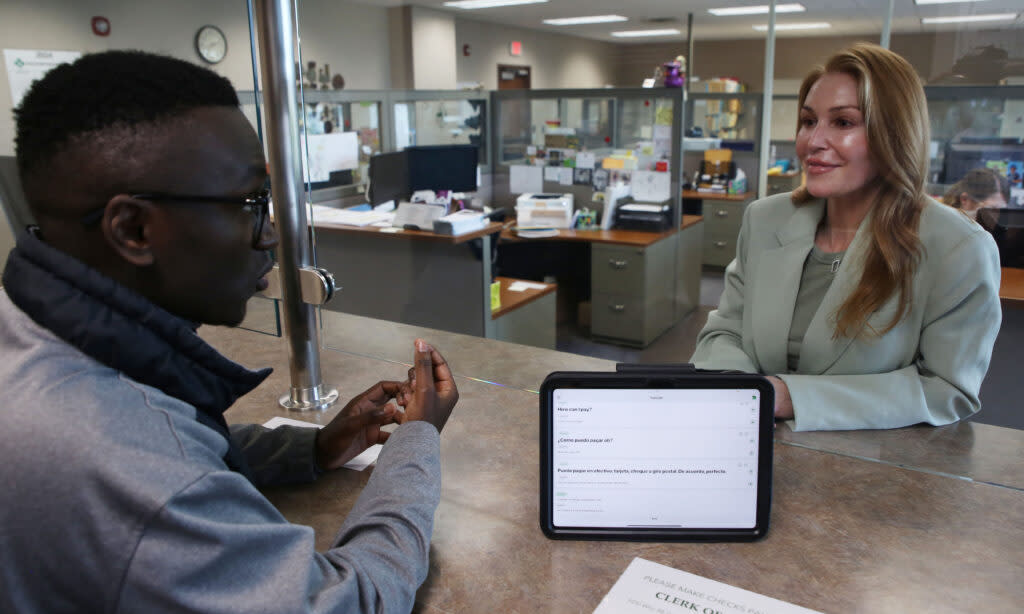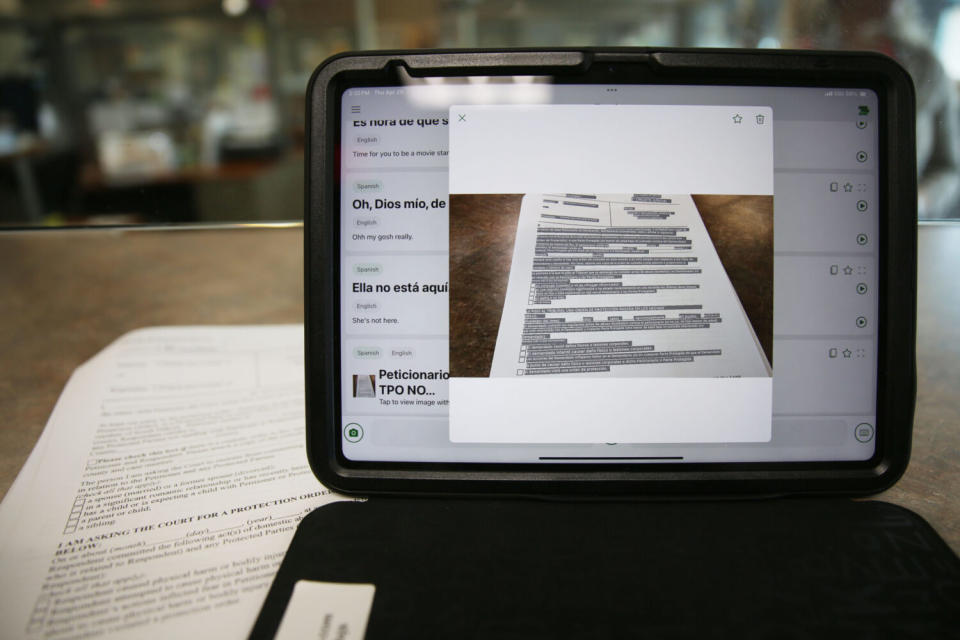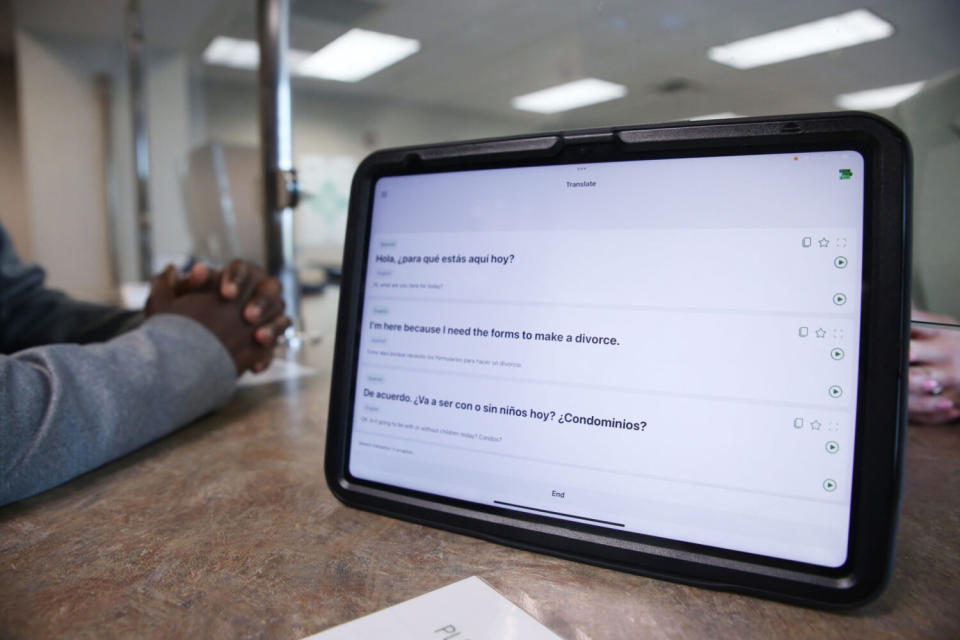South Dakota courts launch live interpreter pilot project in clerks’ offices

Samuel Uwizeyimana (left) and Rachel Scaperotta (right), both employees with the Minnehaha County Clerk of Courts, have a conversation in Spanish and English to demonstrate how a live interpreter service through Certified Languages International works. The device is part of a pilot program to improve language access in the state court system. (Makenzie Huber/South Dakota Searchlight)
Non-English speaking South Dakotans in five counties are now able to talk with an interpreter over a video conferencing software when they’re seeking guidance and help from clerks at the courthouse.
The South Dakota Unified Judicial System provides free access to interpreters — whether in-person or virtually — inside the courtroom. The technology upgrade is part of a pilot program using the software to make it easier to navigate language barriers outside of the courtroom. In addition to the video interpreter, the program offers live AI-written interpreter services and translation services.
While the court system tracks how many times an interpreter was needed inside a courtroom — 3,570 in 2023 — there’s a “gap in the data” regarding how often interpreters are needed outside the courtroom but still within the court system, said Greg Sattizahn, UJS court administrator.
“To meaningfully participate in someone’s court case, they have to have an understanding of what’s happening,” Sattizahn said, “whether that’s the rights read by the judge, witness testimony or having the ability to confer with your lawyer and talk strategy or respond. It’s important for them to meaningfully participate, so language access levels the playing field for those who aren’t proficient in English.”
In the past, and in the remaining 61 South Dakota counties, clerks have used an interpreter service over the phone, which can sometimes be awkward to pass the phone back and forth between the clerk and client.
“When you think of clerk of courts, they have people coming in speaking all kinds of languages and in all sorts of situations,” Sattizahn said. “That’s not something they can prepare a script for, so you have to be ready to adapt.”
The Minnehaha County Clerk of Courts translates a protection order request form from English to Spanish using a picture and software through Certified Languages International at the Minnehaha County Courthouse on April 25, 2024. The device is part of a pilot program to improve language access in the state court system. (Makenzie Huber/South Dakota Searchlight)
An iPad was delivered to each of the five counties earlier this spring: Minnehaha, Brookings, Aurora, Yankton and Beadle counties. The pilot costs about $750 for each iPad along with a $40 monthly data plan for each unit. Over a five-month period, the total cost of the pilot is about $4,750.
If expanded statewide, such a program would have additional one-time costs of over $40,000 for iPads and cost the state over $2,500 monthly for the data plan. The video conferencing system costs $2 per minute, which is used through the court system’s existing contract with Certified Languages International.
Minnehaha, which includes Sioux Falls, and Beadle, which includes Huron, are two counties that have experienced the most language barrier problems, Sattizahn said. In Huron, meat-processing jobs have attracted immigrants from southeast Asia, Mexico and Central and South America.
The Minnehaha County Clerk of Courts uses a software through Certified Languages International to interpret a conversation between Spanish and English at the Minnehaha County Courthouse on April 25, 2024. The device is part of a pilot program to improve language access in the state court system. (Makenzie Huber/South Dakota Searchlight)
About 7% of South Dakotans — roughly 62,800 people — speak a language other than English. Over 17,700 people in South Dakota speak English less than “very well,” according to the U.S. Census Bureau.
The pilot will run through the summer, though it could last longer if rural counties want more time to test interactions. The decision to expand will be based on the quality of interactions rather than how often it was used.
“With the challenges of geography and our ability to recruit interpreters, technology is probably where we need to look for as many solutions as we can,” Sattizahn said. “Technology offers us the most potential.”
SUPPORT NEWS YOU TRUST. GET THE MORNING HEADLINES DELIVERED TO YOUR INBOX
The post South Dakota courts launch live interpreter pilot project in clerks’ offices appeared first on South Dakota Searchlight.



